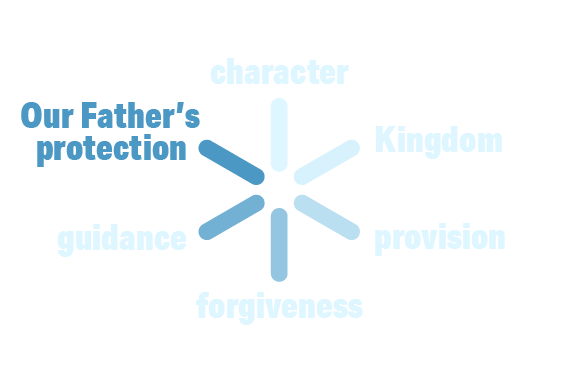“Our Father in heaven, hallowed be your name…” (New International Version)
“Our Father in heaven: may your holy name be honoured…” (Good News Bible)
This week’s thoughts are from the Watts family - parents Jen and Rick with children Abbie and Nathan.
Jen says:
The Lord’s prayer is so familiar to us that it’s easy to overlook how radical it is and how rich a mine of information about God, our relationship with God and how to talk to him. Although Jesus modelled this prayer to his disciples, it was for their benefit and not for his. Jesus did not need to pray in this way; we do. It is a model for the structure of a prayer, not something that we need to recite by rote.
In just one line: our father in heaven, your name is holy; there is so much to delve into.
This sets the tone for the rest of our prayers.
By starting his prayer this way, Jesus shows us exactly how to access God and what tone to use. He reminds us of our relationship to God – we are his children. He is our father; therefore, we can come to him like a child. Children speak from the heart and share absolutely everything on their mind.
He’s also reminding us who God is. Yes, he is our father, but he’s reminding us that he is also a holy and awe-inspiring God. He is the only one with the power to change any situation.
When we focus first on who God is and our relationship with him, the rest flows naturally.
Abbie says:
There’s no point in praying if you don’t believe that God has the power to grant our prayers.
Nathan says:
You don’t need to use fancy words to speak to God, you just need to pray. It’s not about him giving you everything you want; people sometimes forget to thank God for what he has already given us.
Rick says:
Sometimes when we are sitting down to a family dinner, one of our kids turns to Jen and says "Pudding?" I normally reply back with something like "I think what you meant to say was - Lovely Mummy who gave me life and does everything for me, would it be possible to have some pudding please?".
I think this is similar to how we need to approach God, we need to respect him and all that he has done for us before we can enter into further conversation with him.








